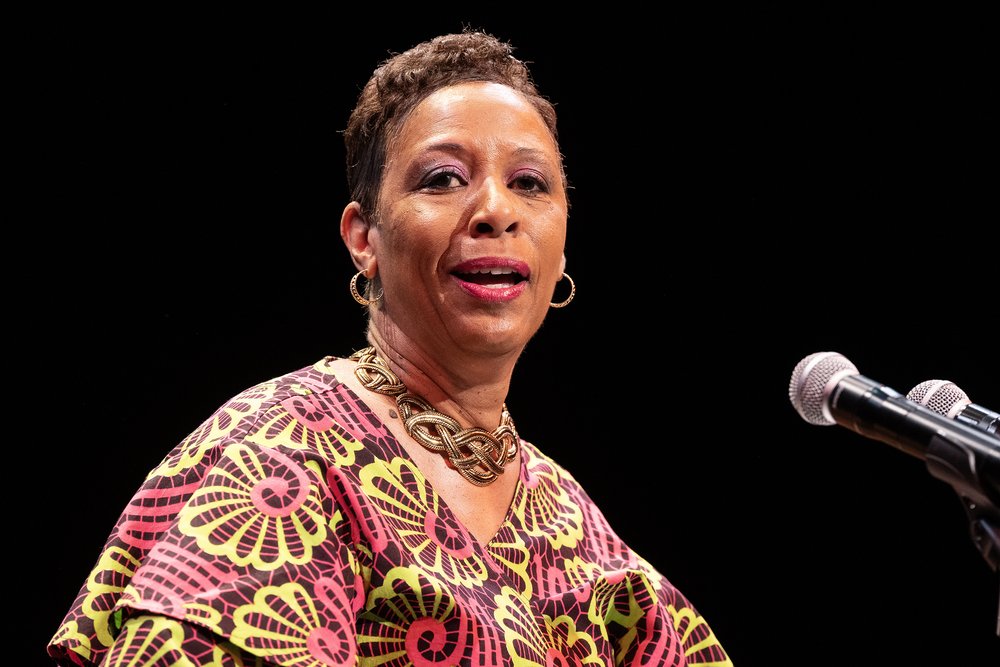Mayor Adams loses fight over criminal justice bills, further empowering City Council
Jan. 30, 2024, 4:48 p.m.
The Council overrode Adams’ vetoes of the legislation on Tuesday despite weeks of vigorous attacks from the mayor and his administration.

The New York City Council handed Mayor Eric Adams another stinging defeat on Tuesday, overriding Adams' vetoes of two criminal justice bills that he had opposed with an intense public campaign directed at both councilmembers and New Yorkers.
The two bills, which will now become law, require police officers to disclose and provide demographic information on all investigatory encounters with civilians, and ban solitary confinement in most cases across the city’s jail system.
Adams spent weeks arguing to anyone who would listen that the legislation would make the city less safe by forcing police to spend more time logging data, and — in the case of solitary confinement — by eliminating a practice he said was necessary to subdue violent detainees.
But in the end, a large majority of councilmembers coalesced around the bills, which supporters said were designed to combat a history of racism and abuse by law enforcement officials. The Council voted 42-9 to reject Adams’ vetoes.
After months of intense divisions around city budget cuts and the migrant crisis, Tuesday’s votes reflected the growing power of a progressive Council and the vulnerability of a mayor facing low approval ratings and a federal corruption investigation.
“This is definitely a loss for the mayor and his team,” said Christina Greer, a political science professor currently serving as a fellow at the City College of New York. “You never let the cart get this far down the road and have a potential override of a veto.”
The fight has exposed the increasing political differences between the mayor — a moderate who has staked his mayoralty on lowering crime — and many of his fellow Democrats in the Council, who are advocating for deeper reforms to how the NYPD and larger criminal justice system treat Black and Latino communities.
Among political historians, the tense and sometimes fractious relationship between the two branches of city government has marked a turning point in City Hall.
“The Council, for the first time, is using the powers given to them,” said Joseph Viteritti, a political scientist at Hunter College. “It’s a very interesting time in the history of the two institutions.”
Before the veto override votes, Council Speaker Adrienne Adams sharply rebuked the mayor’s attacks on the legislation, particularly the police reporting measure.
“The resistance to this legislation is disturbing,” she said. “It should be disturbing to everybody. There should not be resistance to telling the truth about who’s being stopped in the city.”
The speaker and Public Advocate Jumaane Williams, the bill’s main sponsor, have repeatedly cited data as recent as last year that shows police are conducting illegal stops of civilians. A federal monitor has overseen the NYPD since 2013, after a court ruled the department’s use of a tactic known as stop and frisk was unconstitutional.
Although stop-and-frisk numbers have fallen dramatically since the Bloomberg era, racial disparities in police stops have become starker under Mayor Adams. A similar pattern has emerged in traffic stops, which drew more attention this week after Councilmember Yusef Salaam was pulled over by police in East Harlem for having illegally tinted windows but received no explanation for why he was stopped at the time.
The battle over the bills reflected a broader debate that occurred during the 2021 mayoral campaign over how the city should address discriminatory policing. The city is grappling with higher levels of crime since the pandemic, though overall crime dropped slightly last year compared to the year before.
“There are some that want a return to a Giuliani approach and there are those that have a not so distant memory of the Black Lives Matter demonstrations against police abuse,” said Viteritti. “Neither one of them have disappeared. That’s what is playing out now.”
Meanwhile on Tuesday, city officials announced that overall crime between July and October 2023 fell 3% compared to the same period in 2022.
Mayor Adams argued that the Council’s bills, if implemented, could hamper that progress.
“Nothing should get in the way of the city being safe,” he said.
The mayor, a former NYPD officer, pointed to his record of speaking out against stop-and-frisk abuses, saying he agreed with the Council’s goal of ensuring greater police transparency.
“But at the same time I talk about transparency,” Adams added, “I talk about public safety. We can have public safety and justice.”
Exactly how bruised the mayor emerges from his defeat on Tuesday is unclear. Over the last month, budget cuts and the migrant crisis — two issues that polls show Adams has lost support over — have taken a back seat to the debate over the bills. The Council is currently considering his proposed budget for the next fiscal year and may make changes.
Adams’ public remarks in recent weeks have largely hewed to policing and public safety, his most comfortable political and policy lane, according to City Hall observers.
“That has always been his calling card,” Viteritti said. “And he’s playing it again.”
NYC Council expected to override Mayor Adams a second time Tuesday As NYC’s Council prepares to override vetos, Mayor Adams hosts police ride-along Mayor Adams vetoes bill banning solitary confinement, setting up fight with City Council Mayor Adams makes late push to stop overrides to vetoes on NYPD transparency, solitary confinement bills Former NYPD deputy commissioner throws support behind Council’s police transparency bill NYC Mayor Adams sparse on splashy ideas in his 3rd State of the City address Councilmember Yusef Salaam says NYPD stopped him without giving a reason — footage is inconclusive